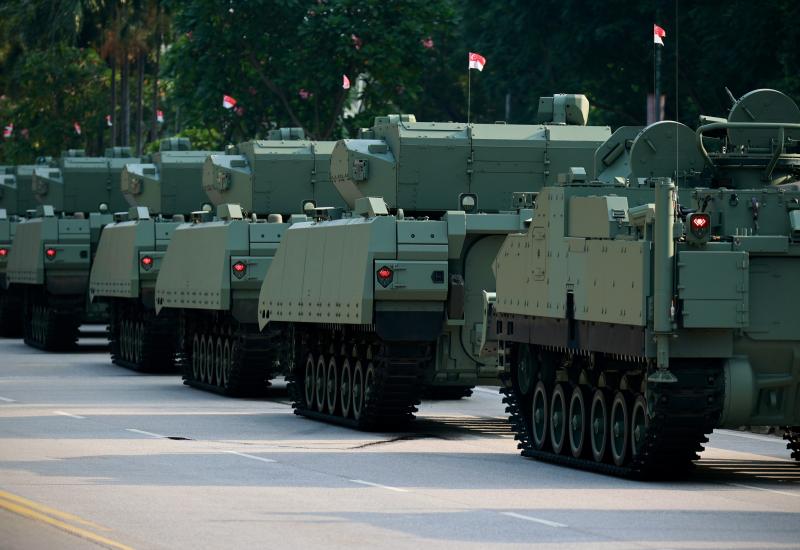
Astra’s Neogene investment nosedives
NT-125 is discontinued, while two key Datroway readouts are delayed.
NT-125 is discontinued, while two key Datroway readouts are delayed.

AstraZeneca quietly disclosed several discontinuations and delays in its second-quarter results presentation, the most notable of which involve a T-cell receptor project from its $200m purchase of Neogene in 2022, and its anti-TROP2 ADC Datroway.
NT-125, Neogene’s lead project, has fallen by the wayside for “strategic” reasons, while readouts from the Tropion-Breast02 and Avanzar trials of Datroway have been pushed back. Astra also discontinued two Car-T projects, the Claudin18.2-targeting AZD6422, and the GPC3-targeting AZD5851.
The latter decision is intriuging: Astra already has China co-development rights to AbelZeta's GPC3-targeting Car-T C-CAR031 (also known as AZD7003), via a December 2023 deal; that project has impressed in liver cancer, and is said to use the same construct as AZD5851.
C-CAR031 is in the Chinese phase 1/2 Starlight trial in relapsed liver cancer, with data due in 2026 or later, according to Astra’s latest presentation. Astra also has a GPC3-targeting T-cell engager, AZD9793, which went into the clinic earlier this year.
Meanwhile, Claudin18.2 is a hot target, but much of the interest appears to be around ADCs. And again, Astra has other shots here, most notably with the Keymed-partnered ADC sonesitatug vedotin, set to yield phase 3 data next year.
Neogene no-no
The loss of NT-125 could be more of a blow, although on a media call Astra’s chief financial officer, Aradhana Sarin, maintained that the purchase of Neogene in late 2022 was still “very much worth it”.
As well as NT-125, Astra also gained a KRAS G12D specific TCR, NT-112, and a TP53-targeting TCR, NT-175, which remain in play. Sarin also highlighted the “talent and manufacturing” capabilities that had come via the deal.
Still, Astra’s main cell therapy interest might now lie elsewhere. Since buying Neogene the UK group also purchased Gracell in early 2024 for its fast-manufactured autologous Car-T, and EsoBiotec this year for in vivo Car-T.
Datroway delays
The Daiichi-partnered TROP2 ADC Datroway, meanwhile, recently defied expectations to get an FDA nod in second-line EGFR-mutated NSCLC, but a first-line test has been pushed back. The Avanzar trial was previously expected to read out in the second half of 2025, but results are now expected in the first half of 2026.
The study, testing Datroway plus Infinzi and chemo, is notable for using an in-house diagnostic to identify patients who might be especially susceptible to treatment with an anti-TROP2 ADC.
And the Tropion-Breast02 trial, in first-line TNBC patients ineligible for PD-(L)1 therapy, is now set to yield data in the second half of this year. Results had once been expected in 2024, but were previously pushed back to the first half of 2025.
Astra’s TROP2 rival Gilead has already toplined a win from the analogous Ascent-03 study of its approved ADC, Trodelvy, although there are questions about the overall survival result.
Both Avanzar and Tropion-Breast02 are event-driven studies, a fact that could help explain the delays, but these will only increase nervousness about a drug that’s so far fallen short of expectations.
AstraZeneca’s discontinuations and delays
| Project | Description | Trial | Status |
|---|---|---|---|
| AZD5851 | GPC3-targeting armoured Car-T | Global ph1/2 Athena in 2nd-line GPC3+ve hepatocellular carcinoma | Discontinued Q2 2025 owing to "strategic portfolio prioritisation” |
| AZD6422 | Claudin18.2-targeting Car-T | China ph1 in Claudin18.2+ve GI tumours* | Discontinued Q2 2025 owing to "efficacy” |
| NT-125 | Autologous multi-specific neoantigen-targeting TCR (via Neogene) | EU ph1 in solid tumours | Discontinued Q2 2025 owing to "strategic portfolio prioritisation” |
| Datroway | TROP2-targeting ADC | Ph3 Tropion-Breast02 in 1st-line TNBC (PD-L1-ineligible) | Readout delayed until H2 2025 (from H2 2024 originally) |
| Ph3 Avanzar in 1st-line NSCLC (Imfinzi combo) | Readout delayed until H1 2026 (from H2 2025 previously) |
Note: *investigator-sponsored trial. Source: Company presentation.
3120













